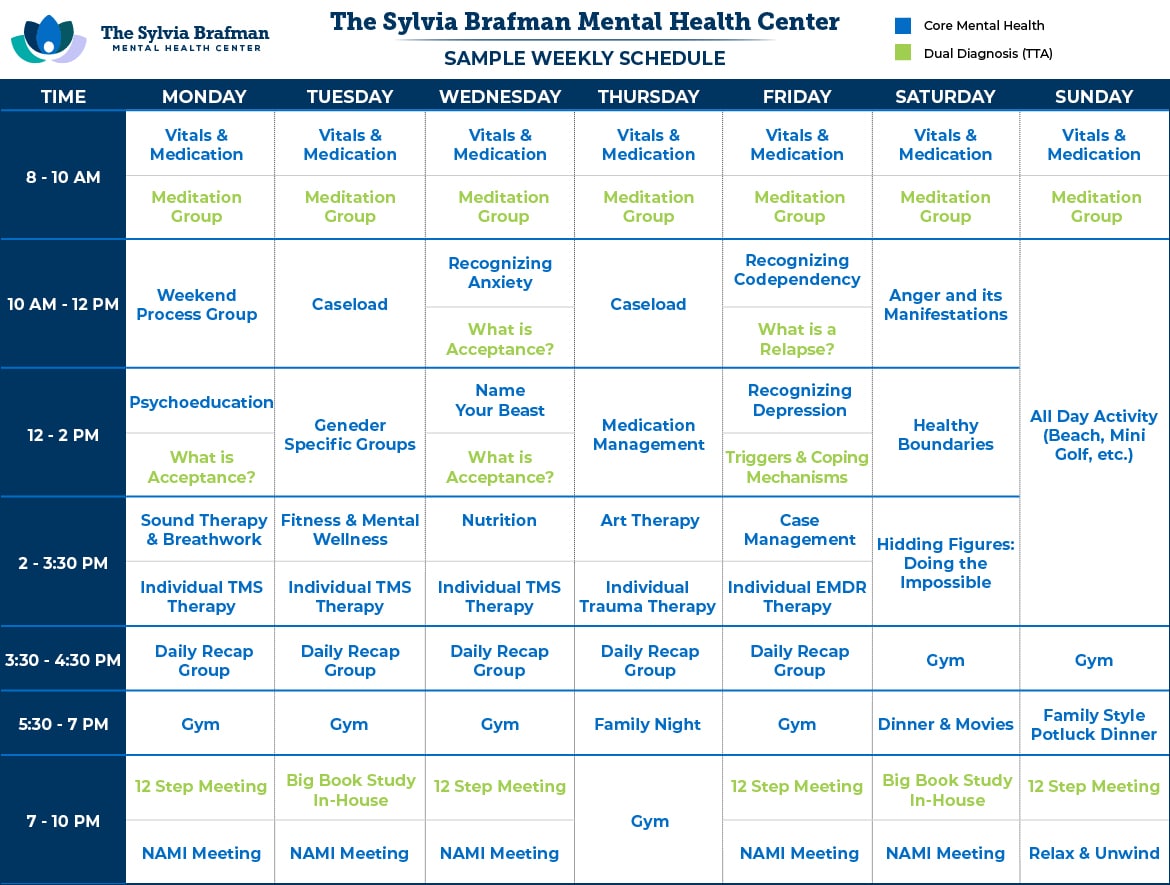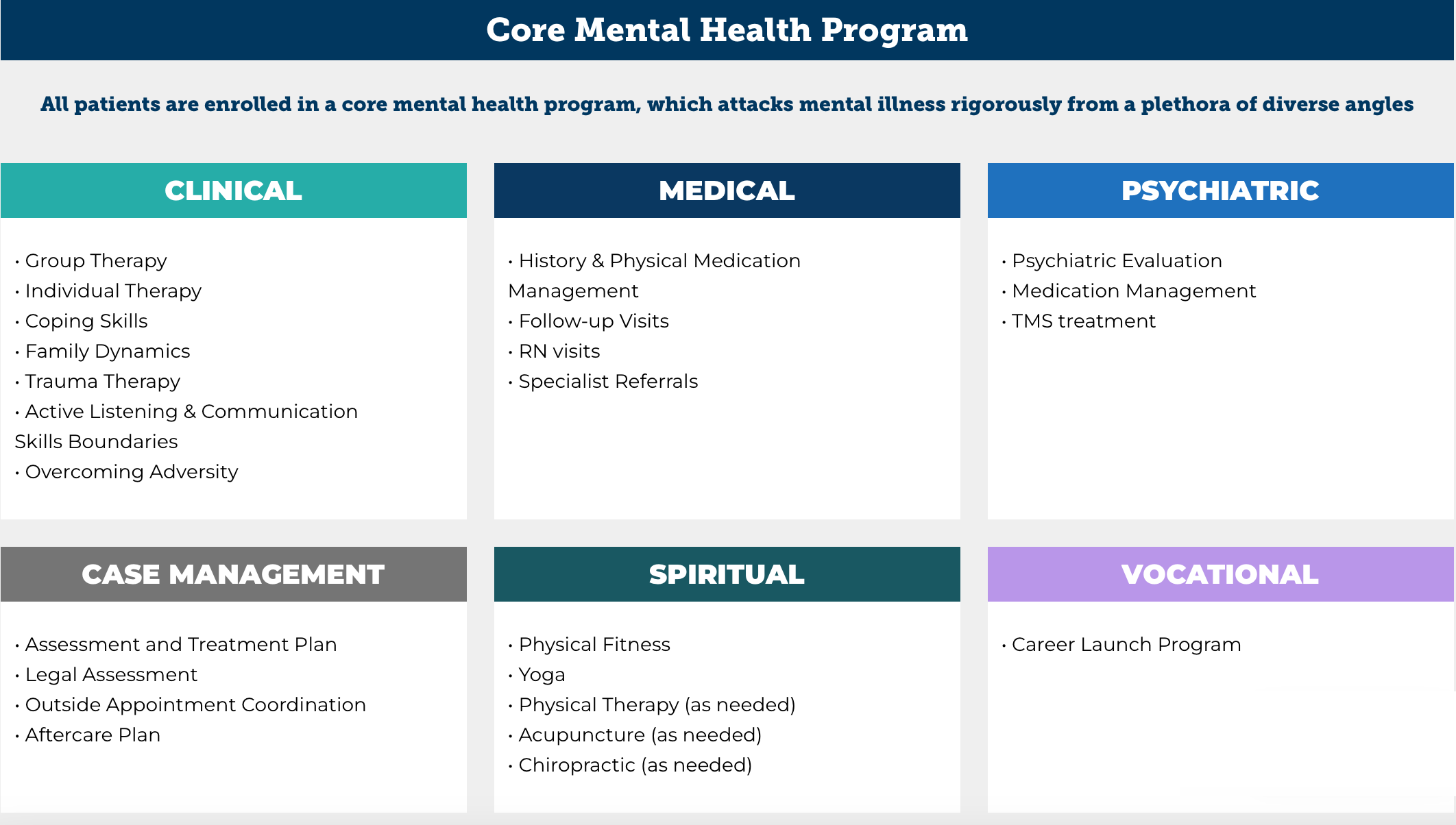The Sylvia Brafman Mental Health Center, situated in the heart of Broward County, Florida, is renowned as a premier mental health and dual diagnosis treatment center. Just a short drive from Miami, Fort Lauderdale, West Palm Beach, Boca Raton, Hollywood, Coral Gables, Key West, and Pompano Beach, our center is conveniently located for individuals across Florida seeking expert care. Our evidence-based Mental Health Partial Hospitalization Program (PHP) near Fort Lauderdale, FL has been recognized for its unique approach to treating a wide spectrum of mental health disorders including depression, anxiety, PTSD, and mood disorders. This program, along with our respected accreditation, underscores our unwavering commitment to delivering the highest quality care.
Our day treatment programs are designed to provide enhanced support, focusing on crisis intervention, trauma and PTSD management, development of coping skills, and medication management for specific mental illness conditions. The team at The Sylvia Brafman Mental Health Center is dedicated to guiding individuals through their unique psychological health disorders and emotional well-being challenges. We encourage you to reach out to us today. Discover our various treatment programs and learn how we can assist you or your loved ones in addressing your mental health diagnosis. Your journey towards healing could begin with just one phone call.













